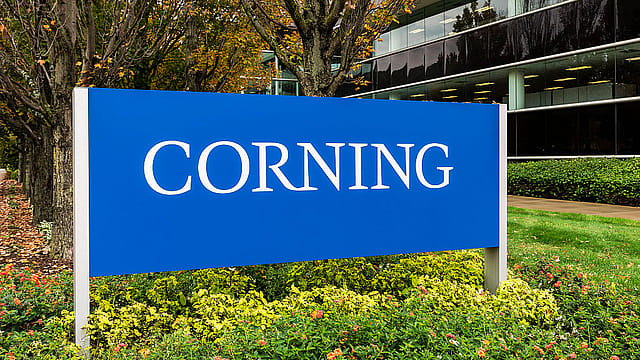Corning to start production of Made-in-India Gorilla Glass in 2025
ADVERTISEMENT

Material science giant Corning will start producing locally-made Gorilla Glass for smartphones in the second half of next year, according to Corning India managing director Sudhir Pillai.
Bharat Innovative Glass Technologies Pvt Ltd, a joint venture between Corning International and Optiemus Infracom Ltd, will manufacture glass covers for mobile consumer electronics. The ground-breaking ceremony for the $100 million plant happened near Chennai in June this year.
“Since 2007, Corning has shipped 8 billion devices with Corning Gorilla Glass. In the last 10 years, we have shipped 2.5 billion pieces of Gorilla Glass for smartphones in India,” says Pillai.
The New York-based company is now looking to partner with semiconductor players in the country. Corning supplies optical materials that are used in the chipmaking process. It, however, plans to make those products locally only when the whole ecosystem is ready.
“We will be there when the ecosystem is generated. If the customer is not there, it doesn’t make sense for us to be there and do production and then ship elsewhere. So, first the ecosystem needs to be present in a country and then we can say let’s play together,” says Gokhan Doran, division vice-president and general manager at Corning International.
January 2026
Netflix, which has been in India for a decade, has successfully struck a balance between high-class premium content and pricing that attracts a range of customers. Find out how the U.S. streaming giant evolved in India, plus an exclusive interview with CEO Ted Sarandos. Also read about the Best Investments for 2026, and how rising growth and easing inflation will come in handy for finance minister Nirmala Sitharaman as she prepares Budget 2026.
The investments by chipmakers is opening this new era that will enable the ecosystem to establish in India, says Doran. “The government is very supportive. Global players are also looking at making big investments in the country. Once the stars are aligned, we will also be here,” Doran says.
Corning is also the world’s largest optical fibre maker. The company has a plant in Pune which makes optical fibre cables for telecom and data centre businesses. “With artificial intelligence (AI), data transfer requirements are becoming 10 times more than what is required in a regular data centres. We have developed a technology to transfer more data in a single cable which will be required by hyperscale data centres to accommodate AI,” says Doran.
For the automotive industry, Corning makes ceramic substrates to control tailpipe emissions. It also makes glass for display screens, lenses and glasses to cover radars and lidar for parking sensors in the car.
When asked if the transition to electric vehicles has hit the company’s substrate business in the country, Doran says the overall car market is growing in general. “So both things are moving in parallel. Demand for internal-combustion engine cars in India is increasing even as EV penetration grows,” he says.
